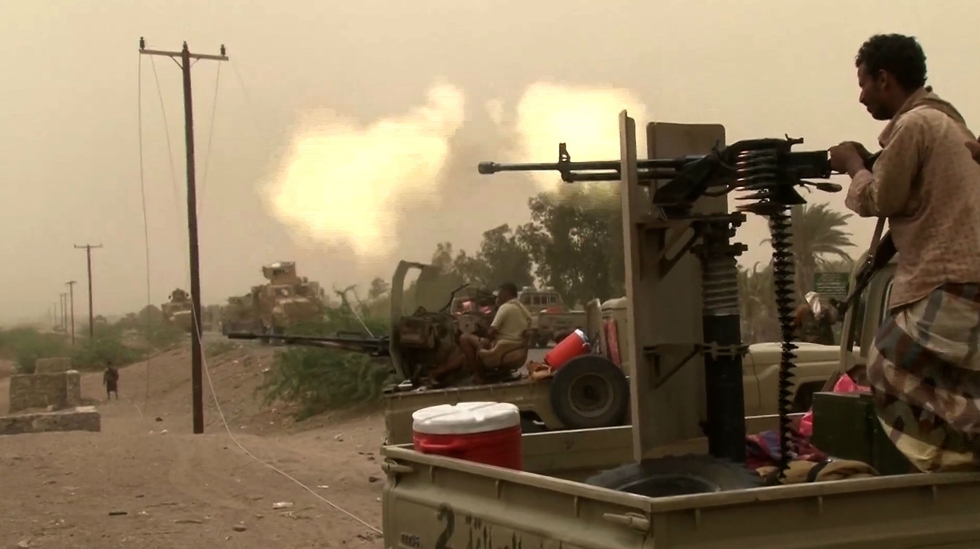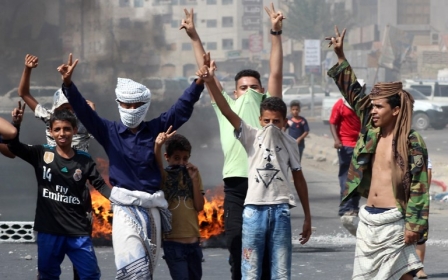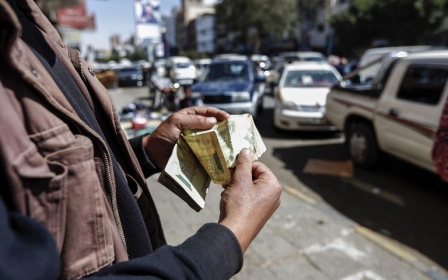More than 80 dead in fighting in Hodeidah after Yemen peace talks collapse

Clashes and air strikes have left 84 people dead around Yemen's Red Sea port city of Hodeidah since the collapse of United Nations-brokered peace talks, hospital sources have said.
The sources in Hodeidah province, which is controlled by Houthi rebels, said on Sunday that 11 soldiers and 73 rebels had been killed since the talks were abandoned on Saturday.
Dozens of rebels and at least 17 soldiers had also been wounded.
Attempted peace talks between Yemen's Saudi-backed government and the Houthis, who are linked to Iran, collapsed on Sunday, sparking fears of an escalation in the country's conflict.
The rebels refused to leave Yemen for the talks in Geneva, saying the UN had not met their demands - including a plane to transport their wounded to nearby Oman and a guarantee their delegation would be allowed to return to the capital Sanaa.
Following the collapse of the talks on Saturday, the head of the Houthi rebels called for "resistance" to continue.
"Our choice is steadfastness and resistance to aggression on all fronts," Abdulmalik al-Houthi said in a defiant speech.
"I appeal to the free and honourable people of Yemen today to go to the fronts ... We must move on all fronts to recruit for our defence," he said in a speech broadcast on rebel TV.
'Sabotage negotiations'
The UN special envoy said the failure of the talks did not represent a "fundamental blockage in the process" and that he would meet soon with Houthi representatives in Sanaa and in Muscat, Oman.
"They would have liked to get here, we didn't make conditions sufficiently correct to get them here," Martin Griffiths told a news conference on Saturday in Geneva, declining to elaborate.
An agreement had been reached for medical evacuations from Sanaa, to start in a week with a flight to Cairo, he added.
Yemen's foreign minister accused the Houthis of "trying to sabotage the negotiations," and said that Griffiths had not been firm enough with them.
"We want the UN to be firmer in bringing the other party to the negotiations," Khaled al-Yamani told a news conference before leaving Geneva after three days of talks with Griffiths on confidence-building measures, including prisoner releases.
In 2014, the Houthis seized control of a string of Red Sea ports and the capital, driving the government out of Sanaa and President Abd Rabbuh Mansour Hadi into exile.
In 2015, Saudi Arabia and its allies intervened in the conflict to bolster Hadi. The Saudi-backed coalition now controls Yemen's airspace.
Some 10,000 people have since been killed, according to UN figures which have not been updated since January 2017, and the country now stands at the brink of famine.
The coalition launched a major offensive to retake Hodeidah, the entry point for some 70 percent of Yemen's imports including food and aid, in June.
In July, the coalition had announced a temporary ceasefire to give a chance to the UN-brokered peace talks.
Middle East Eye propose une couverture et une analyse indépendantes et incomparables du Moyen-Orient, de l’Afrique du Nord et d’autres régions du monde. Pour en savoir plus sur la reprise de ce contenu et les frais qui s’appliquent, veuillez remplir ce formulaire [en anglais]. Pour en savoir plus sur MEE, cliquez ici [en anglais].




